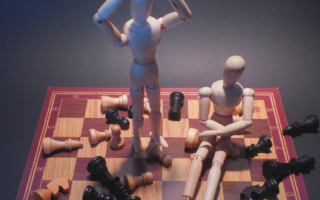My Chattery book club + online Becoming Me Project group is reading Bari Tessler’s The Art of Money this month, and this week we’ve had our first discussions about that. As I reflect on those two conversations, each with really vulnerable and meaningful moments shared by incredibly brave women, I have a few questions that arise that might help you dig in on your own relationship with money.
First, some background: Bari Tessler calls herself a “financial therapist,” which feels like the absolutely perfect way to describe what her book seeks to accomplish. Rather than lecturing you about why you need a budget, really strict tracking systems, and a rigid effort to control yourself around money, Bari takes a heart-centered, values-based approach to our relationship with money. It feels honest, realistic, and aligned.
A few critical takeaways from what we’ve read:
Money struggles are rarely JUST about money.
They’re more deeply about a whole host of other things, stuff like the “eight areas to money work”: clarity; intimacy; knowledge; ease/peace of mind; success; value; hope; and support.
Examining your money stories is a critical step to unpacking your relationship to money. This requires going back to the earliest memories you have about money … what happened? How did you feel? What lessons did you draw from those experiences that you still carry with you today?
You might find it helpful to relabel expense categories or debt, so that it’s a little less pejorative. For example, instead of talking about “student loans,” you might redub that debt “my fabulous educational odyssey.” Instead of fretting over “credit card debt,” perhaps instead talk about “my incredible year of travel.”
OK. Here are some questions to get you thinking.
- What feelings of shame or guilt come up for you around money? When do you feel those? HOW do you feel those? (Physically? Emotionally? Spiritually?)
- What are your current money practices? Are there new practices you could play with?
- What are the most important things in your life — the things that make you feel alive, happy, satisfied, purpose-driven? How do your current spending patterns align with those things? (This is about trying to find alignment in values + spending.)
- What are some of your earliest memories around money? What messages did you take from those experiences?
- Did your family talk about money? How? What messages did you hear from your parents about money?
- Could you rename categories of spending / debt to create a healthier relationship with those parts of your money life?
- When you’re feeling anxiety, shame, or guilt around money, try to make a note of that feeling. Later, circle back and zoom out: What was REALLY going on under that emotion? What’s the real thing that’s worrying you? What message was your inner critic trying to send you? Try to observe this as you would a leaf floating down a river — what do you notice? Get curious, and imagine you’re a seagull flying over that experience. What do you notice from way up high?
- If you have a partner, what kinds of phrases or tones do they use around money? In what way does that mirror what you’ve heard from other people in the past (especially your parents)? How do you react to those phrases or tones? What’s happening there?
Like our relationship with food, the way we relate to money is often about something so much deeper and elemental about the way we feel about ourselves. Anxiety around money is often about anxiety around not being _____ enough (good/talented/valuable/worthy/etc). How is your inner critic making your habits around money about who you are as a person?
Feel free to reach out if you’d like to talk about this more. I’ll be featuring some of this work on my podcast soon. (If you’d like to have a really brave conversation about this work, let me know!)







